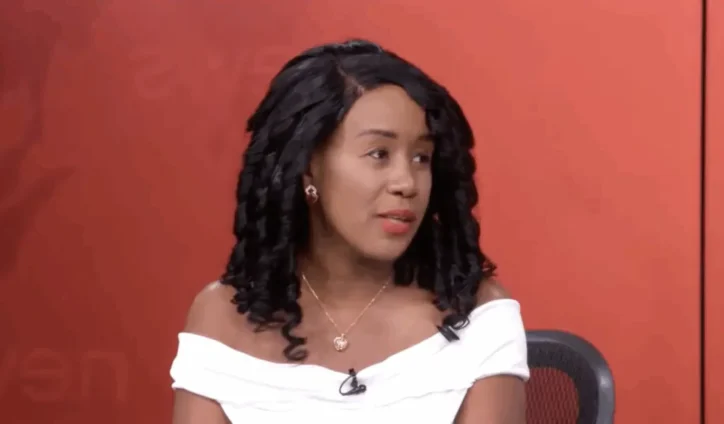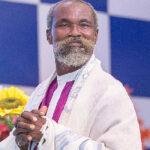The removal of Chief Justice Gertrude Torkornoo marks a defining moment in Ghana’s constitutional history.
It is, in legal terms, the beginning of a slippery slope—if it can happen once, it can happen again, and the precedent will shape how future Chief Justices are treated in office.
At the heart of Ghana’s constitutional framework is the doctrine of separation of powers. Under the 1992 Constitution, the President, the Speaker of Parliament, and the Chief Justice are co-equal in status as heads of the Executive, Legislature, and Judiciary respectively. Each is designed to be independent of the other, with checks and balances preserving the delicate equilibrium of our democracy.
The Constitution does provide a mechanism for the removal of superior court judges under Article 146, but it was always assumed to be reserved for the most extraordinary of circumstances. Today’s development demonstrates that, notwithstanding the “high threshold” envisaged by the framers, the office of Chief Justice is not immune to political winds.
This is not the first time we have seen such a shift. The removal of the Electoral Commission Chair in 2018 set a striking precedent, and observers—including senior members of the NDC—have openly suggested that the current EC leadership may also be replaced within a year. Taken together, these actions risk normalising the removal of constitutional officers who are meant to stand above partisan politics.
In Chief Justice Torkornoo’s case, some point to her past involvement in politically sensitive matters—most notably, her position in cases concerning the Speaker of Parliament’s authority to declare a parliamentary seat vacant. Whether one agreed with her legal reasoning or not, her willingness to enter the core of political contestation exposed her to political consequences. In hindsight, a more restrained approach might have shielded her from such vulnerability.
Yet the wider concern is systemic: if the Chief Justice can be removed—even under constitutional procedure—it lowers the protective barrier around the judiciary as an institution. It places future judicial heads in a position where their tenure may be influenced not solely by fidelity to the law but by political calculations.
For Ghana’s democracy, this is a watershed. The Constitution was designed to keep the Judiciary strong and independent, not interchangeable with political officers. The removal of a sitting Chief Justice—though conducted under the law—carries the risk of chilling judicial independence.
The deeper question is not whether Justice Torkornoo’s rulings were right or wrong, but whether today’s removal strengthens or weakens the rule of law. The real test will be whether future Chief Justices can exercise independence without fear of political reprisal. If not, Ghana may have entered uncertain constitutional territory where the separation of powers is more fragile than ever.
Four constitutional questions we can’t ignore
The removal of Chief Justice Gertrude Torkornoo is not only a historic first; it raises profound constitutional questions that go to the heart of separation of powers in Ghana. While Article 146 sets out a lawful process, the circumstances and implications demand careful scrutiny.
What precedent does this set?
The doctrine of separation of powers was designed to insulate each branch of government from overreach. Yet Ghana’s political history shows repeated attempts by the executive and dominant parties to expand their influence into the Judiciary and independent constitutional bodies. The removal of an Electoral Commission Chair in 2018, and now the Chief Justice, risks normalising the practice. The precedent is clear: constitutional offices once thought untouchable can be vacated mid-tenure. The effect will be to chill judicial independence, as future Chief Justices may weigh political repercussions alongside legal fidelity.
Was the committee constitution compromised?
Article 146(9) provides for a committee of inquiry, but questions linger about whether the composition in this case was beyond reproach. Critics point to possible conflicts of interest—for instance, former Auditor-General Daniel Domelevo, who himself challenged his removal, had a role that some argue compromised the perception of impartiality. Even if lawful, the appearance of bias can undermine confidence in the process. Judicial independence requires not only fairness but also the perception of fairness.
Does the ECOWAS Court matter?
The former Chief Justice has filed a case before the ECOWAS Court of Justice. While its rulings are binding on member states, enforcement has often been uneven. That said, a decision in her favour could expose Ghana to reputational damage internationally, particularly as a country long regarded as a democratic model in West Africa. The irony of a Chief Justice successfully challenging her own removal abroad would be politically costly, even if domestically the ruling is ignored.
What needs to change?
If Ghana is to avoid recurring controversy, reforms are needed:
• Clearer safeguards in the composition of Article 146 committees, excluding anyone with potential conflicts.
• Independent vetting mechanisms—perhaps involving the Judicial Council or the Ghana Bar Association—to bolster credibility.
• Transparent reporting: findings should be publicly accessible to ensure accountability.
• Cultural restraint: constitutional powers must be exercised sparingly, with political actors recognising that the Judiciary’s stability is a national interest, not a partisan one.
Conclusion
The removal of a Chief Justice may be constitutionally valid, but it must also pass the higher test of legitimacy in the eyes of citizens. Unless reforms are pursued, Ghana risks sliding into a pattern where judicial heads are treated as political appointments rather than constitutional guardians. That is the real slippery slope—and it will determine the strength of our democracy for decades to come




